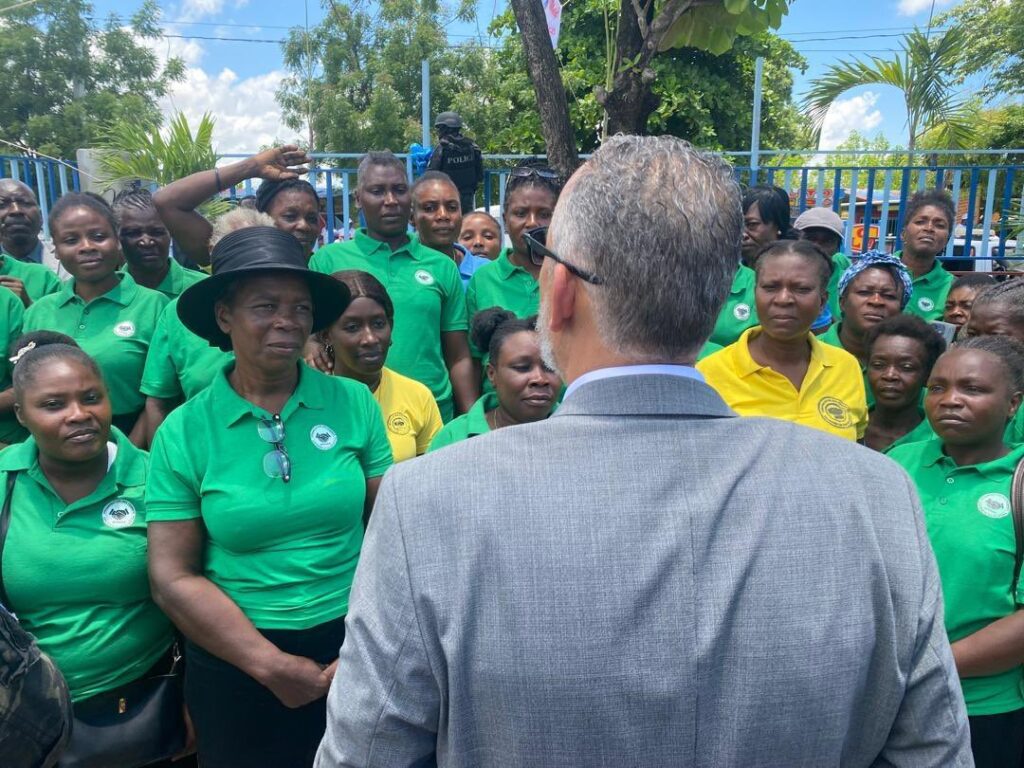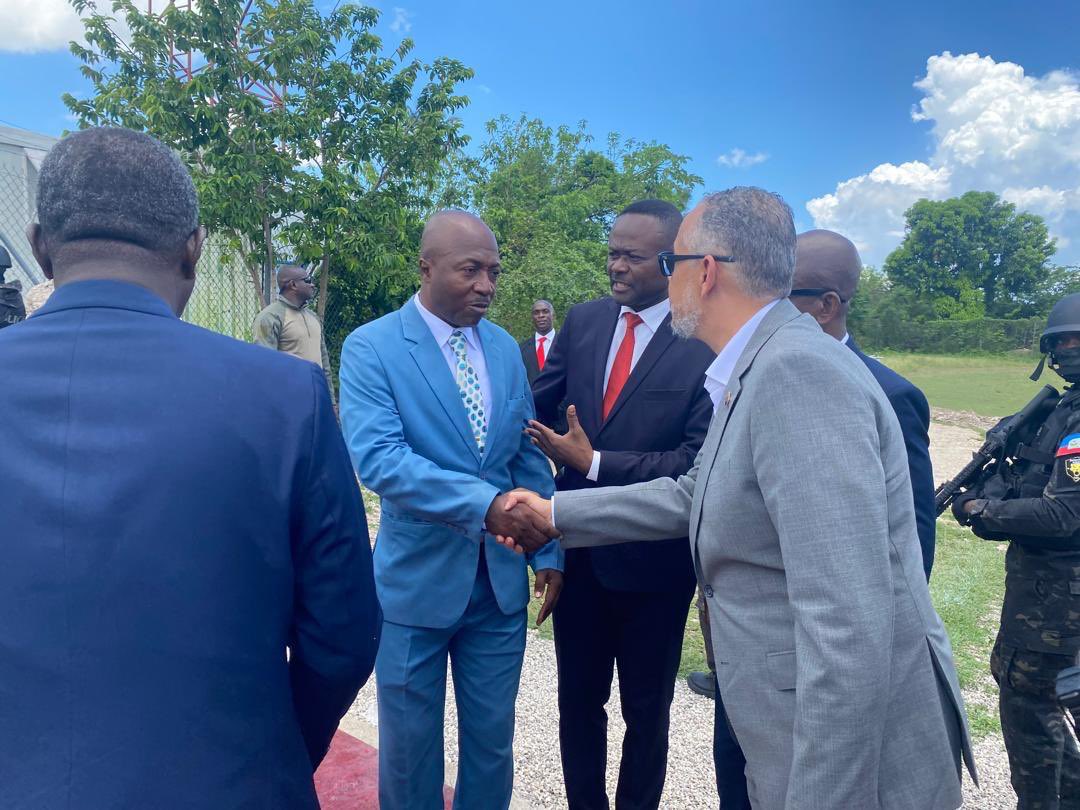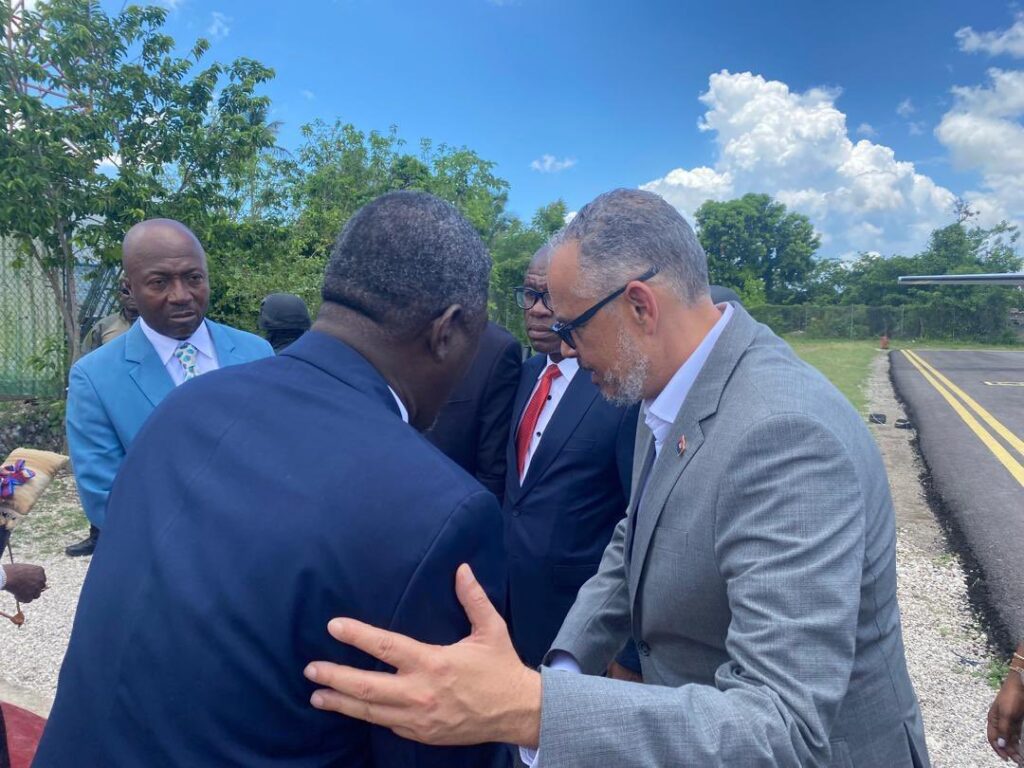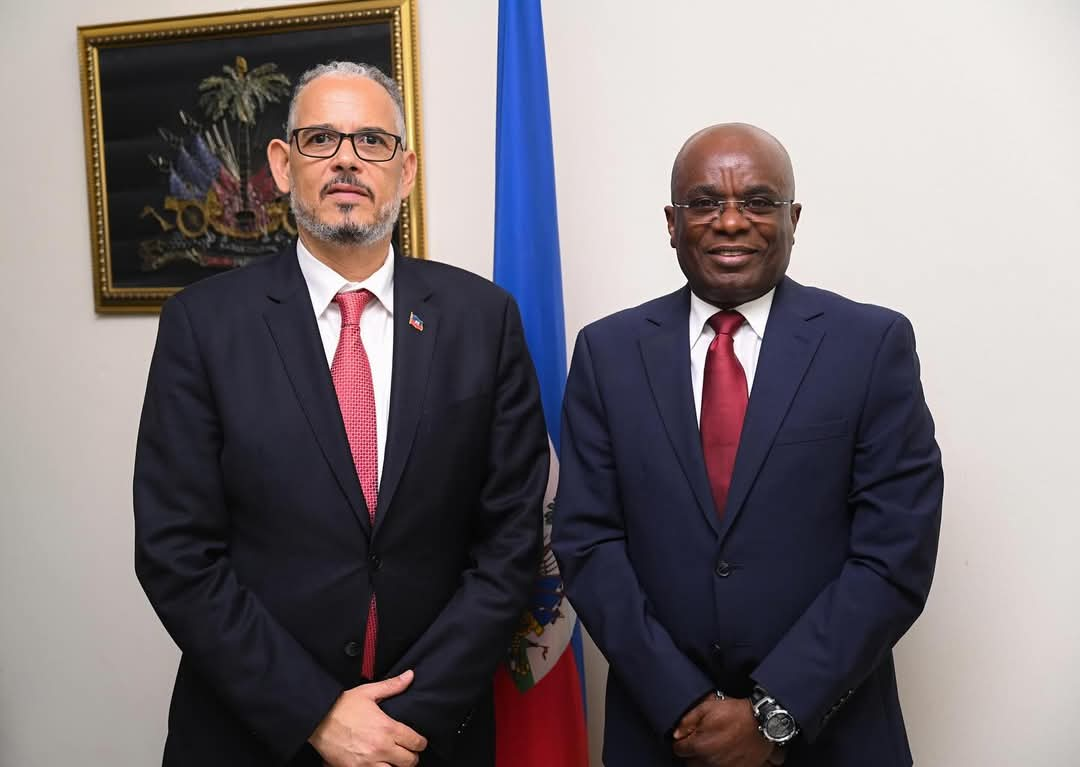In a significant move aimed at strengthening the connection between the central government and regional communities, Prime Minister Alix Didier Fils-Aimé traveled to the Southern Department of Haiti this week, sending a strong message of inclusiveness, equity, and governance outreach.
During this working visit, the head of government met with local officials, civil society leaders, and residents to hear firsthand about the challenges facing the region—ranging from deteriorating infrastructure and economic vulnerability to security concerns and stalled development projects. The visit is part of a broader national listening tour, initiated by Fils-Aimé, to reset the relationship between the State and the people in the wake of Haiti’s ongoing political and security crises.
“This government does not intend to govern from behind closed doors,” the Prime Minister declared during a community forum.
“We are here to listen, to partner, and to act—not just to make promises, but to deliver.”
The Southern Department, historically underfunded and frequently sidelined in national policymaking, welcomed the visit as a potential turning point. Residents voiced frustrations but also expressed hope that the Prime Minister’s presence marked the beginning of a more inclusive and responsive governance model.
Beyond symbolism, the visit aimed to lay the groundwork for concrete projects. According to government sources, the Fils-Aimé administration is preparing a set of regional development initiatives that prioritize infrastructure rehabilitation, local economic growth, and institutional support for local governance structures.

By engaging directly with municipal leaders and civic actors, the Prime Minister also reinforced his commitment to decentralized governance, a principle he has championed since taking office. “Development must come from the ground up,” he noted. “Our people should not have to come to Port-au-Prince to be heard.”
Analysts view this visit as a strategic step in rebuilding public trust, especially at a time when Haiti faces widespread disillusionment with political leadership. The Prime Minister’s decision to prioritize rural and regional communities in his first months in office signals a shift from capital-centered politics to territorial equity and grassroots engagement.
While the visit did not include new policy announcements, it sparked optimism that long-neglected areas like the South may finally be seen as integral to national reconstruction efforts. Fils-Aimé promised follow-up visits and regular dialogue with local authorities, framing his leadership as one of presence, humility, and accountability.
In a country where central power often feels remote and disconnected, Alix Didier Fils-Aimé’s direct engagement may prove to be more than a political gesture—it could become a new model for governing in fragile states.






